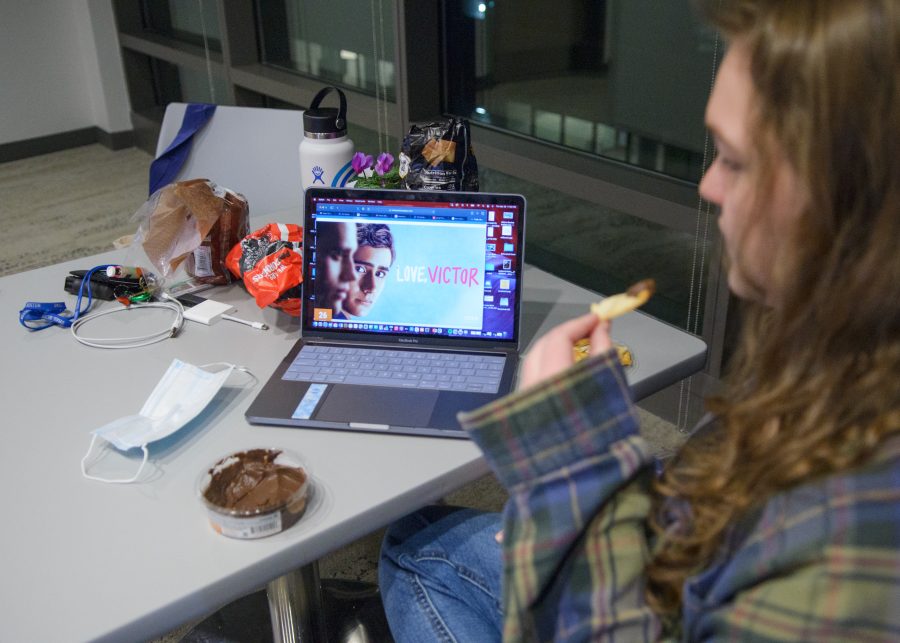If any common person were to think of films or television shows that had LGBTQ+ characters or romances, they would most likely be able to think of one or two instances. Some may have more, but overall, the ratio of gay or transgender characters and relationships is far less than that of heterosexual characters and relationships. Having more representation on the silver screen not only shows the growth of the industry but also gives an idea of acceptability to young viewers. In the time where “Don’t Say Gay” bills are passed, there is a need for a representative or a voice.
Depictions of queer and transgender people in the films have always been presented to viewers, but most of the time they have been stereotyped. For instance, gay men were usually shown wearing pink and had more feminine traits in their way of talking and walking, whereas the representation of the lesbian community was most often shown by wearing flannels and having short haircuts. If this misperception wasn’t enough, then gay characters were commonly used to tease straight character just to create a “comical” scene. As Hugh Armitage from Digital Spy said:
“Lisping, flapping, screaming, weeping, musical-loving, cross-dressing, being-an-interior-designer—if you can think of it, they possess it. The flaming homosexual is usually (but not always) portrayed with a level of affection, but also doubles down on the stereotypical view of what it means to be gay” (1).
If students or young viewers don’t see healthy queer representation enough on the big screen, then they might feel less confident or comfortable in their own sexuality. Seeing them on screen gives them a character to whom they could relate. One needs a story that they can relate or empathize with when they watch, hear or read it. As Nadia Sanburn said:
“Representation also brings awareness to the existence of LGBT+ people. Through a fictional character, people who would otherwise not really know much about this specific group of people can be educated through their favorite shows” (2).
Some shows and movies portray and involve LGBTQ+ characters as an important lead and not just using them for creating humor. Out of the most famous shows, “Grey’s Anatomy” has to be one of them. The couple that queer people and allies alike enjoyed was Callie Torres and Arizona Robbins. They were a nice couple to see on screen, defied the odds and overcame the hardships of being LGBTQ+ one by one in order to be together. They had the impression that this was a romance that would last forever. This was a really big step for the makers as they portrayed a love story when it was not accepted.
Years later came Nico and Levi. Despite the fact that the medical drama has been on screen for 14 years, the couple is the show’s first openly homosexual male romance. As actor Jake Borelli, who plays Levi Schmitt, said in an interview with Metro:
“I think the queer community—and there are so many stories to tell—I think Grey’s has done something really well. When they start telling a story, they tell it fully, down to the nitty gritty” (3).
However, queer people aren’t the only people who deserve representation. The transgender community does as well, and recently actor Elliot Page came out as transgender, which appeared to be a step in the right direction. In an interview with Oprah Winfrey, which was later transcribed by Megan Stone and Victoria Haffner for Good Morning America, Page said:
“With this platform I have, the privilege that I have, and knowing the pain and the difficulties and the struggles I faced in my life, let alone what so many other people are facing—it absolutely felt just crucial and important for me to share that” (5).
Page also discussed how he always thought something was wrong from a young age, as well as felt uncomfortable in his own body. Seeing a person who is coming out as transgender and talking about it in many interviews is what this society needs, and as of recently, his character in the Netflix series “The Umbrella Academy” will be transitioning to mirror Page and his gender identity as well. As Jennifer Maas for Variety said:
“Previously the cisgender woman Vanya Hargreeves in Seasons 1 and 2, Page’s character—whose superpower involves unleashing force through the use of sound—will transition in the upcoming third season, which debuts on June 22. Page’s character will now be known as Viktor Hargreeves and use he/him/his pronouns” (6).
It isn’t just television that is being inclusive and welcoming. The 2018 film “Love, Simon” is directed by Greg Berlanti, who is gay. He was 49 years old when he decided to produce a film about coming out that was easier than what he had to go through. As Berlanti told MTV News:
“I saw myself in him [Simon Spier, the main character of “Love, Simon”] because I shared a lot of my own personal experiences of being a closeted child in a little town with a fairly well-adjusted family and a pretty well-adjusted individual but still battling with the closet” (7).
The fear of a queer or transgender loved ones being bullied, humiliated or not being accepted in society has caused negative reactions from family, friends and society as a whole. There might be religious or legal consequences as well. As a community, there is a need to provide a safe environment for everyone. It takes a lot of guts and confidence to come out, and society should accept them. Even if it’s only a fictional character, they should still be supported. It might be a close friend or family member’s story, too.
-
https://www.digitalspy.com/movies/a860896/lgbtq-gay-stereotypes-90s-movies/
-
https://lhsbudget.com/opinion/2021/01/11/lgbtq-people-are-underrepresented-in-films-and-television/#
-
https://deadline.com/2015/05/grace-and-frankie-creator-marta-kauffman-netflix-1201421556/
-
https://www.goodmorningamerica.com/culture/story/elliot-page-exist-coming-transgender-77392526
-
https://www.mtv.com/news/3069577/love-simon-greg-berlanti-interview/

